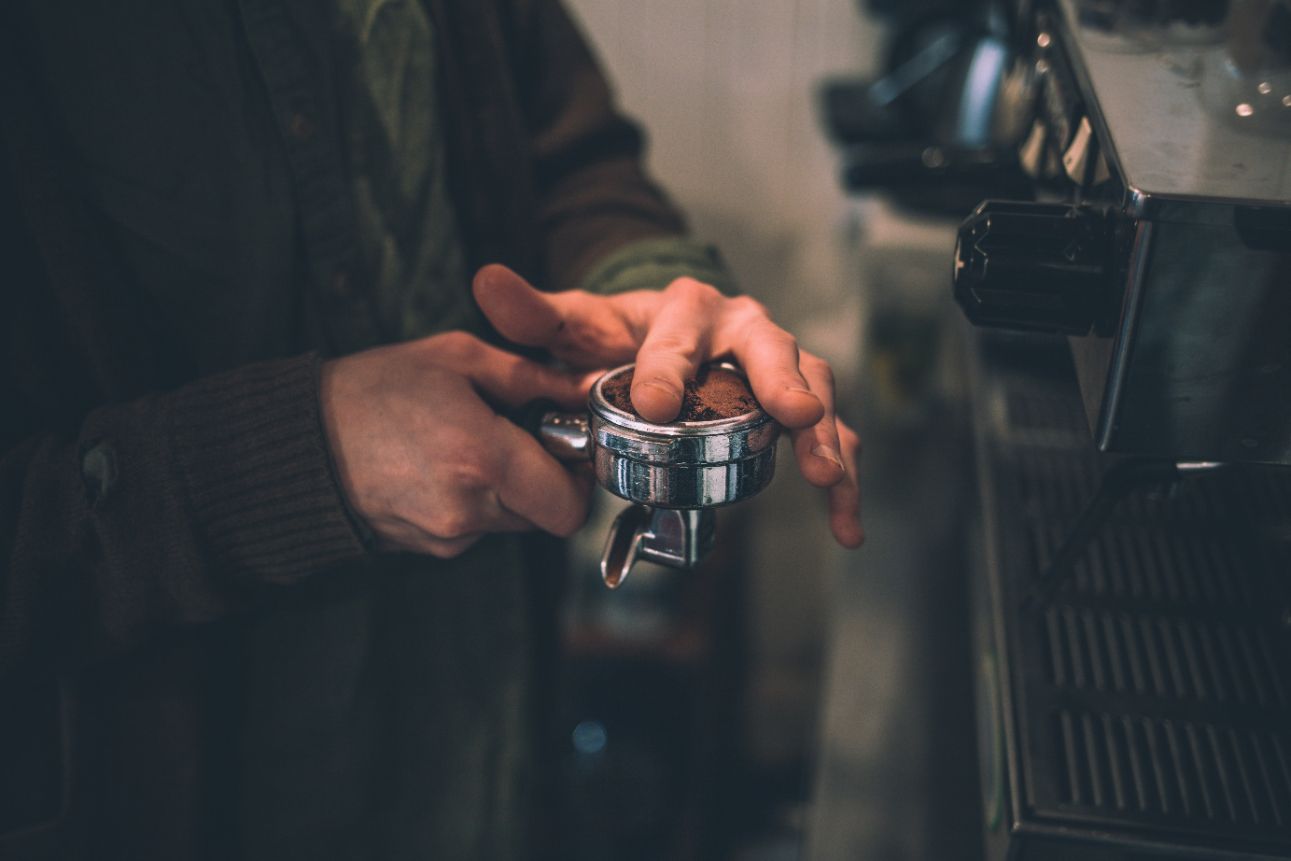Improve Your Espresso With a Barista Course

When running your coffee shop, there are plenty of things to consider. However, the forefront of your shop should always be the taste. If your coffee doesn’t taste as good as it possibly can, then what is the point? You may have the best coffee machine you can get but this isn’t where you should stop when it comes to quality control. There are a lot of things that go into the making your espresso taste the best it can, be that from the beans to how you store and handle them. A barista course can really help elevate your coffee, teaching your baristas some important skills that many overlook.
What Affects Espresso Taste and How A Barista Course Can Help
Making a cup of espresso can be described as an art, but really there’s a lot of science behind it. All your baristas need to understand this, that there are fine margins between a bad tasting cup and a great one. There are many factors that go into the taste but there are four main ones that the barista can control:
- The coarseness of the grind
- The temperature of the extraction
- The Extraction time
- The all-important coffee-to-water ratio.
There are many things that barista training and barista courses can help with. The untrained barista may not fully understand how or even why to control these factors. Coffee roasters and barista schools have produced many impressively complex charts plotting grams of coffee against the volume of water overlaid with concentration and yield. In the middle is the ideal weight/ volume/ concentration yield target for the perfect cup of coffee.
Over time when we change the four variables, it will have an effect. Caffeine is very water soluble and the vast majority of the caffeine is extracted early. The volatile oils, which give coffee its complex flavour and aroma, extract more slowly. The organic acids, which make coffee taste bitter, are extracted the most slowly of all.
In this article, we’re going to focus on how a barista course can help with the grind of your espresso. There are so many different ways barista training and barista courses can help educate your baristas on the power grind size can manipulate coffee taste. Let’s take a look below.
Barista Courses and Espresso Ground Coffee
How and when you grind your coffee is incredibly important for the flavour of your espresso. Firstly, you should really grind your coffee immediately before brewing to keep the best flavour. Coffee begins to lose flavour almost immediately after being ground from a bean so keeping that flavour consistent requires fresh grinding for each cup. We’ve spoken before how to store ground coffee and what makes it go bad if you need more detail on the process.
The grind size and consistency of your espresso ground coffee matters quite a bit too. The coarseness of the grind and the extraction time are inextricably linked. The finer a coffee is ground, the more surface area there is. Conversely, the larger the grind, the smaller the surface area. In a nutshell, If your grind is too coarse you will have a weak coffee but also if the grind is too fine then you’ll over-extract the coffee, giving you that bitter taste.
Let’s look at why. Consider the two ends of the spectrum, if we grind coffee as fine as talcum powder we have maximised the surface area available for extraction. Therefore, we can very quickly extract the target compounds – but perhaps too quickly for some people’s tastes. At the other end of the spectrum, could you use whole coffee beans? Believe it or not, given enough time, we can extract unground coffee. This isn’t ever really done due to it being wasteful of the coffee beans. This is down to the fact the hot water may not penetrate all the way to the interior of the bean, so we throw away unextracted material.
Now we’re not proposing to use either of those extremes, we want you to find an ideal grind size somewhere in the middle. The point more is that the ideal grind isn’t the same for every cup of coffee. You should match the residence time of the hot water (flow rate) across the ground coffee beans with your ideal caffeine/ volatile oil/ organic acid ratio.
A barista course helps develop a baristas palate and allows them to experiment with grind adjustments. Having a barista trained to be aware that if the coffee is too bitter, the coffee may be too fine and if it’s too weak then it may be too coarse is important. They don’t need to just understand this, they also need to understand grind adjustment.
Grind Adjustment and How Barista Courses Can Help
Having the ideal grind is, therefore, essential to have a great cup of espresso. Too fine a grind, too slow an extraction and too coarse means too fast an extraction. This means a barista needs to be comfortable with setting appropriate grind adjustments on the fly. Different coffee will need different adjustments after all and not everyone is going to be ordering the same coffee. A barista course helps a barista understand how to do this optimally as well as clean the machine properly to keep results consistent.
Adjusting the grind is more manual than you would expect. It isn’t just an automated button press, you need to be aware of the grind you need. Espresso grinders are designed for precision. Small adjustments will make a large difference in the time of your extraction. Having knowledge of the process will allow for consistency in taste.
For example, this is how we instruct those to alter the grind for our own Heavy Bag espresso blend. Before you reset your grinder ensure you have checked all the other possible causes of the off-tasting espresso (dose, correct size basket, cleanliness of blockages of group head, pressure gauges.) Double check the direction your collar/adjustment ring turns to result in a coarser/finer grind.
Adjust the grinder and dose 19 grams of coffee in the portafilter. Make a double espresso and check the weight of the espresso, should be 32 grams. If it takes less than 21 seconds, adjust your grinder a to a finer grind. If it takes longer than 30 seconds, adjust your grinder to a coarser grind. The ideal extraction for the Heavybag espresso blend is between 23 and 26 seconds. Ensure you make only small steps adjustment unless your extraction is somehow way outside tolerance (8 seconds or 1 minute for example.) As you can see we train our baristas to be accurate, taking an almost scientific approach to the brewing of coffee.
Where to Take a Barista Course in London
We at 80 Stone Coffee understand that if you want our wholesale beans to taste as good as they can, you need a trained barista. Therefore, we offer some great barista courses for beginner and intermediate baristas.
Our beginner’s course helps new baristas with maintaining equipment and the essential coffee making skills, but you want your barista to be an expert. Our intermediate course will really help develop the essential skills. Designed for more experienced baristas, the course focuses on technique and sensory aptitude to develop the barista’s palate. We help them fine-tune their technique with grind adjustment, espresso tasting skills, latte art and espresso machine calibration.
It’s great to get your baristas together for training. Many baristas have different styles so it’s important to train as a group every 3-6 months to ensure that all baristas know the parameters of the coffee and to keep up the standards that are required. Otherwise, issues may arise when customers come to order coffee and see that they don’t like the barista on shift because he/she made the coffee different from the barista yesterday.
This level of training is run at our roastery in Croydon. Contact us if you need more information, we want to make sure that your baristas capture the quality of your coffee. We also just love sharing our knowledge of coffee. We believe a well-trained barista and some of our own roasted coffee will give you a winning cup of espresso every time.
Speciality Coffee Suppliers
80 Stone Coffee is a speciality wholesale coffee supplier with a long and passionate story for all things coffee. All our coffee beans are roasted in our London based roastery. Browse our shop to see the different beans we have to offer. We not only provide you with the best La Marzocco equipment but we provide some great barista training.
